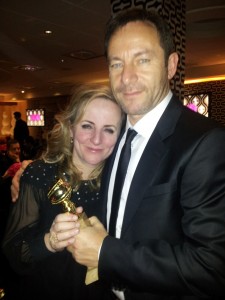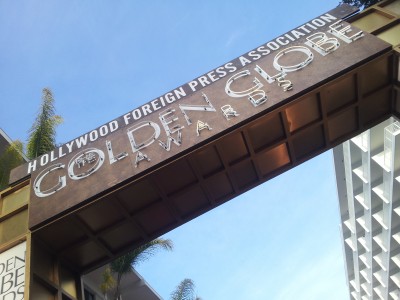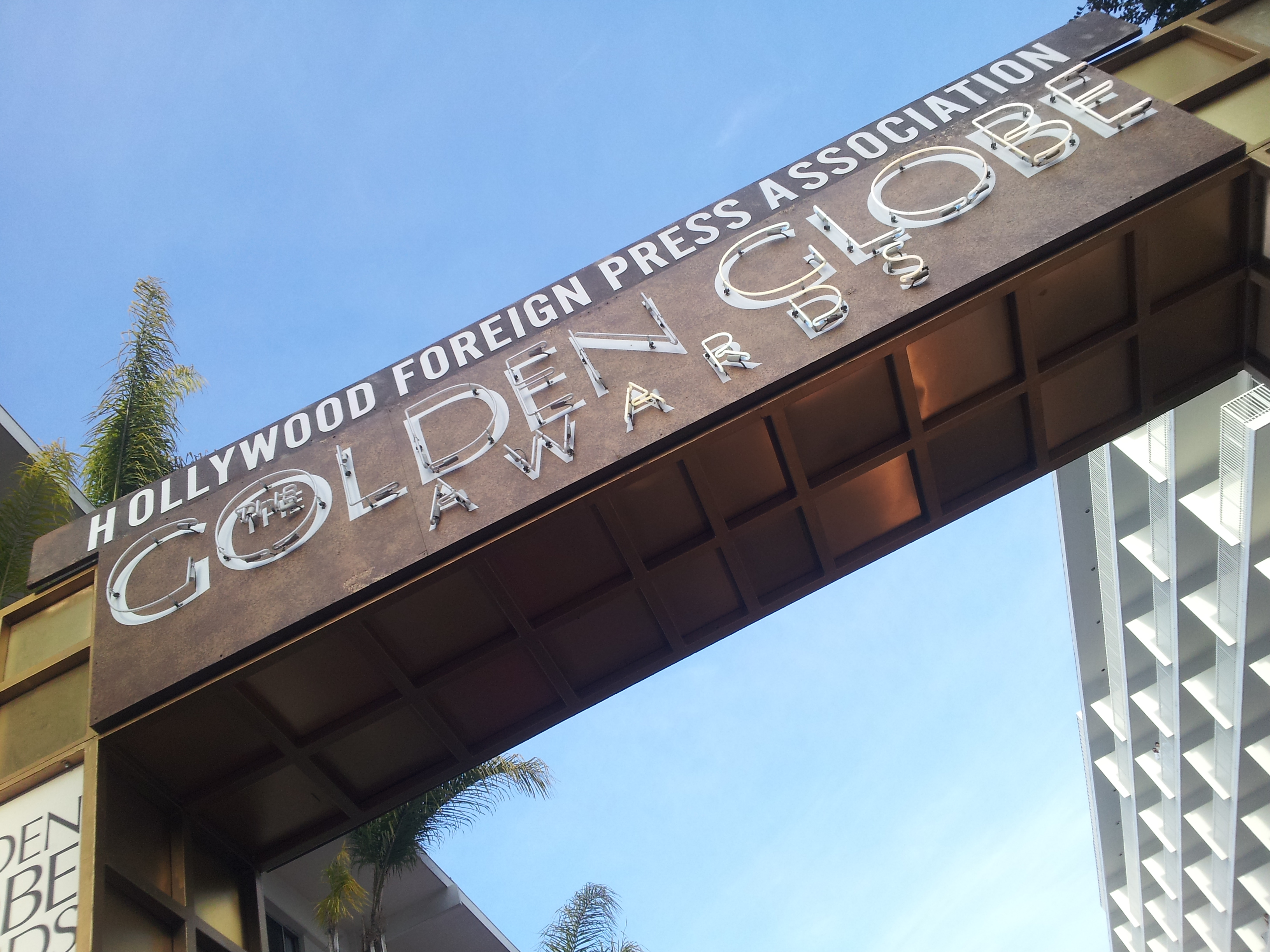Working Title’s big screen adaptation of Cameron Mackintosh’s musical Les Miserables won the most Golden Globes at what career achievement honouree Jodie Foster called “the most fun party of the year.”

At the seventieth annual ceremony, at the Beverly Hilton hotel, the Hollywood Foreign Press Association picked Les Mis over The Weinstein Company’s Silver Linings Playbook as the Best Film of the year in its Comedy or Musical category. “It’s nice for a musical to win for a change,” producer Debra Hayward told UKscreen, as she celebrated her victory with friend Jason Isaacs. “I can’t tell you how much this means to us,” added Ron Meyer, the chairman of Universal, the studio that backed the production.
Two of the main actors also picked up trophies; Hugh Jackman for the best leading actor in a comedy or musical and Anne Hathaway’s brief appearance, centred on her rendition of I Dreamed a Dream, secured her the prize for the best supporting actress in a film.
The best actress in a musical or comedy went to Jennifer Lawrence for Silver Linings Playbook, beating off strong competition from three British actresses, Emily Blunt and Dames Maggie Smith and Judy Dench. Christoph Waltz beat his Django Unchained co-star Leonardo DiCaprio to the Best Supporting Actor in a Film contest. The film’s writer/director, Quentin Tarantino, said it was a surprise to win the Best Screenplay trophy. “I’m happy to be surprised,” he beamed.
Among the top awards in the drama category, the least surprising result of the night saw Daniel Day-Lewis take the Best Actor prize for his portrayal of Abraham Lincoln. The most surprising moment of the night was when a clip from the film was introduced by the former President Bill Clinton, who said Steven Spielberg’s epic should be a guide to future presidents. “What an exciting special guest” remarked co-host Amy Poehler, with faux naivety. “It was Hillary Clinton’s husband!”
The Best Actress in a Drama was Jessica Chastain for Zero Dark Thirty. She praised the film’s director Kathryn Bigelow, who was overlooked at the Oscars, as an inspiration to her and to other women in the film industry.
The other director who, against expectations, failed to impress the Academy enough to secure and Oscar nomination, Ben Affleck, won the HFPA’s award for Best Director, accepting the honour graciously, without referencing his Oscar snub, as he did when he collected the Critics Choice Award, on Thursday. His film Argo took the Best Drama honours, prompting a standing ovation from the audience.
The other film awards saw the Austrian director Michael Haneke collect the Golden Globe for Best Foreign Film for his French language Cannes Palme d’Or-winning Amour; Brave took the Best Animated Feature; Life of Pi won the Best Score; the Best Original Song went to Adele for Skyfall. “Oh my god. Oh my god. It’s amazing,” she began, in her unmistakable North London accent. “I’ve been pissing myself laughing all night.”
 As the biggest awards ceremony after the Academy Awards, and coming a month and a half earlier, while the Oscar ballots are still open, the Golden Globes are often seen as predictors of Oscar success, or even a guide to the choices of Academy members, but with Affleck missing out on a Best Director nomination at the Oscars, this year’s Globes will be less useful in that sense. The question remains whether history will see the Academy or the HFPA as having got it “right.”
As the biggest awards ceremony after the Academy Awards, and coming a month and a half earlier, while the Oscar ballots are still open, the Golden Globes are often seen as predictors of Oscar success, or even a guide to the choices of Academy members, but with Affleck missing out on a Best Director nomination at the Oscars, this year’s Globes will be less useful in that sense. The question remains whether history will see the Academy or the HFPA as having got it “right.”
As the hosts, Poehler and fellow former Saturday Night Live cast member Tina Fey pointed out, Golden Globes night is one of those rare occasions when “the beautiful people of film rub shoulders with the rat-faced people of television.” So the biggest names in TV joined their big-screen colleagues in marching to the podium to collect an array of awards.
Homeland was the big winner, collecting trophies for the Best TV Drama Series, the Best Actor in a TV Drama Series for British star Damian Lewis and the Best Actress in a TV Drama Series for Claire Danes. The show’s best supporting actor hopeful, Mandy Patinkin, lost out to Ed Harris for the American political satire Game Change, which also won the award for the Best Mini-Series or TV-Movie, a category in which it had faced competition from the British show Downtown Abbey and the one-off film about Hitchcock and Tippi Hedren, The Girl, made by London-based production company Wall-to-Wall.
The Girl’s stars also missed out on awards; Toby Jones lost in the Best Actor in a mini-series or TV movie to Kevin Costner, for Hatfields & McCoys, while Sienna Miller was beaten to the Best Actress trophy by Julianne Moore, with her portrayal of the former Republican vice-Presidential candidate, Sarah Palin, in Game Change. Dame Maggie Smith, who missed out in the film awards, took Golden Globe for the Best Supporting Actress on TV, for Downton Abbey.
In the comedy categories, Don Cheadle won the Best Actor in a series for House of Lies and Lena Denham collected the Best Actress honours for Girls, which also won Best Comedy Series.
Not so long ago, the honourees for the TV categories would have been very different from those being awarded for their work on the big screen, but every last one of the actors collecting Golden Globes for their work in television have carved a successful career for themselves in cinema. This could be seen as positive for television, because the bigger film stars are keen to work on the small screen too, or it could be seen as a threat to television actors who are seeing their territory invaded by their higher profile colleagues.
